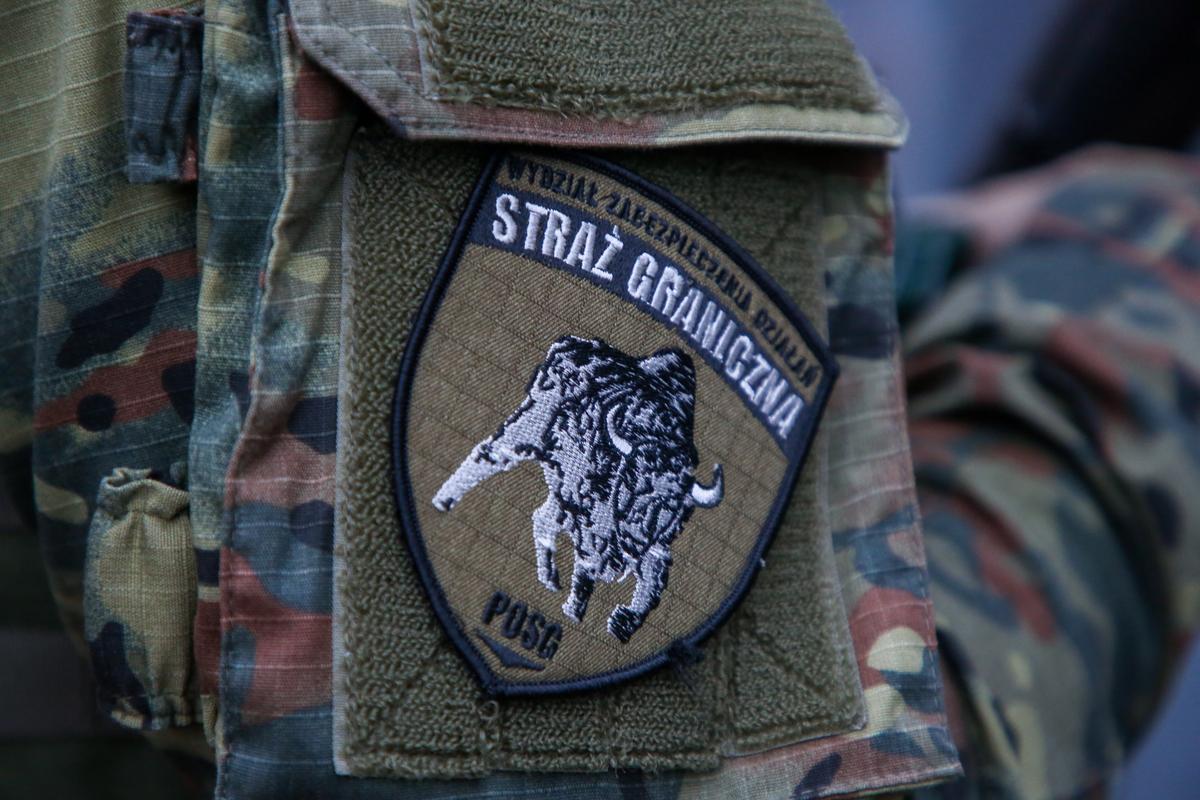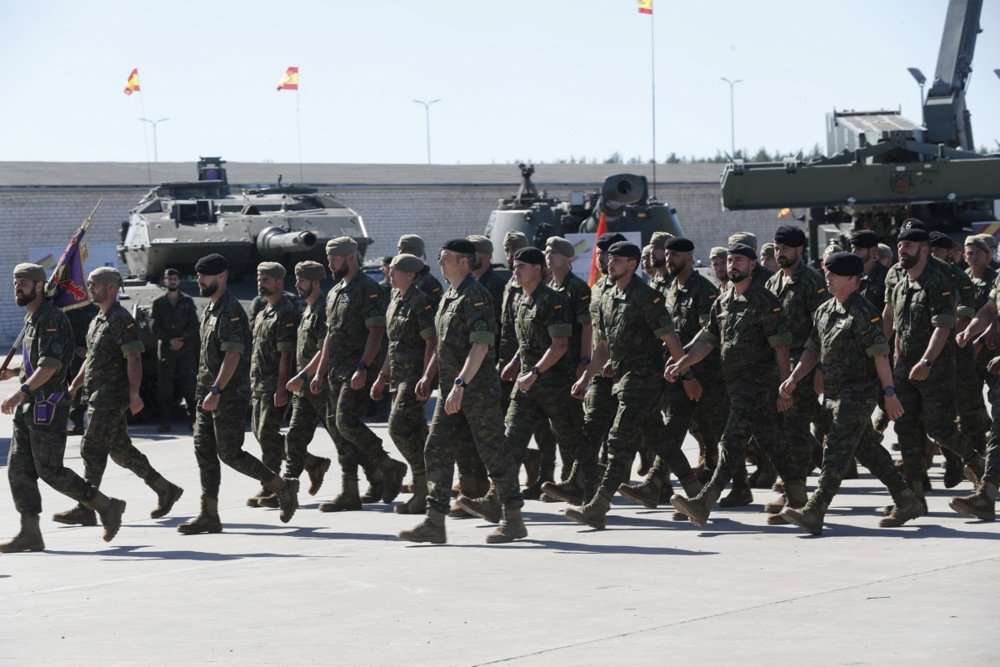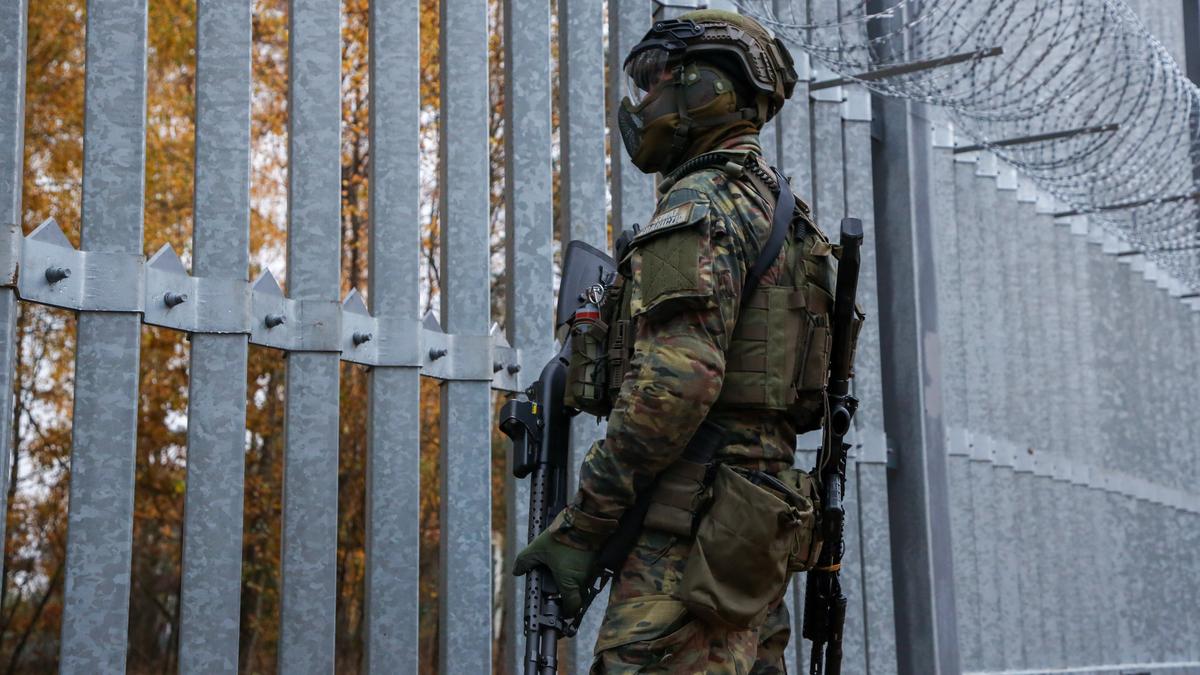Against the recent backdrop of the US’s feverish push for peace in Ukraine, several EU member states that border Russia have called on their NATO allies to remain vigilant over the threat posed by their eastern neighbour, even in the event of a ceasefire between Kyiv and Moscow, and warned that the Kremlin’s interest in peace should not be overestimated.
In the past month, US President Donald Trump and key figures in his administration have said they believe Putin is sincere in his desire for peace while also casting doubt on the idea that Russia would seek to invade more of Europe in the future. Poland, Estonia, Latvia and Lithuania however, spent March pushing a radically different line: one urging defensive preparation and military readiness for potential war with Russia.
In Poland, extensive cooperation with the United States has long shaped security policy. But with the Trump administration increasingly tepid towards continued European defence partnership, Warsaw appears to be looking beyond Washington to address key foreign policy concerns linked to a deep-rooted distrust of Russia, both by increasing domestic defence capabilities and expanding European security cooperation.
To that end, Poland’s Prime Minister Donald Tusk began March by announcing a plan to provide all adult men with military training — part of a wider effort to put together a 500,000-strong Polish army — and revealed that “serious talks” were already underway with France to provide security guarantees to the country with its nuclear deterrent.
Both moves marked significant changes in posture. The Polish army is already the biggest in the EU, but under the new plans, the force is to grow to nearly twice the size of the French army, the bloc’s second-largest. Tusk stressed that he did not want to bring back mandatory military service, which Poland wound down in 2008. Instead, he described his military training plan as similar to the Swiss model, which requires all men to complete either military or civilian service, leading to the training of millions of reservists.

An officer wears the emblem of the Polish Border Guard on his uniform at the country’s Połowce-Pieszczatka border crossing with Belarus, 30 October 2024. Photo: EPA-EFE / Artur Reszko
Poland’s interest in finding an alternative nuclear umbrella is indicative of a wider pattern of thought on the continent. While the United States has long been the sole provider of nuclear deterrence for NATO states in Europe, French President Emmanuel Macron recently proposed using France’s warheads to safeguard the continent from Russian threats. Shortly after Tusk raised the topic, all three Baltic nations also called for wider discussions about extending France’s nuclear umbrella to Eastern Europe.
“With this decision, we are sending a clear message: our countries are prepared and can use every necessary measure to defend our territory and freedom.”
In mid-March, Poland and all three Baltic states announced their intention to withdraw from the Ottawa Convention, the landmark disarmament agreement that bans the production, stockpiling, or use of anti-personnel landmines. In a statement explaining the move, the countries’ four defence ministers described the decision as necessary given the significantly deteriorating security environment: “With this decision, we are sending a clear message: our countries are prepared and can use every necessary measure to defend our territory and freedom.”
That Estonia, Latvia, and Lithuania have joined Poland in adopting this measure should be little surprise; having endured centuries of Russian and Soviet domination, the Baltic states strike a hawkish security stance today, emphasising a vigilant approach and deterrence through coalition-building. In this regard, NATO cooperation has been vital. Multinational battle groups constantly rotate through Estonia, Latvia, and Lithuania, as well as other eastern flank states such as Bulgaria and Romania, with Western European nations’ troop contributions particularly important.
For that reason, the recent French- and British-led proposal to form a “coalition of the willing” to police a future peace agreement between Kyiv and Moscow has in some ways raised more questions about the prospect of Russian aggression than it has answered for the Baltic states. Concern has grown that NATO could redeploy soldiers currently located in Estonia, Latvia, and Lithuania to provide a “reassurance force” in Ukraine. Though each country spends over 2.5% of its GDP on defence annually, comfortably above the 2% target set by NATO, they remain heavily reliant on foreign brigades to provide additional security.

Members of NATO’s enhanced Forward Presence Battle Group at the Ādaži military base in Latvia, 25 June 2024. Photo: EPA-EFE / TOMS KALNINS
As Estonian Defence Minister Hanno Pevkur recently told the Financial Times, should a permanent ceasefire agreement be reached between Kyiv and Moscow, some 300,000 Russian troops currently on the frontlines in Ukraine could be redeployed to Russia’s border with the Baltic states. “We cannot jeopardise the security of the eastern flank of NATO,” Pevkur said. “We cannot fall into the trap that our forces are somehow fixed in Ukraine. Then we will have risks at our border.”
In a landmark move on Tuesday, Germany announced that it would deploy a 5,000-person armored brigade to Lithuania, its first foreign troop deployment since World War II. While Poland and the Baltic states will welcome this sign of NATO’s continued commitment to the wider region, they will nevertheless want more assurance that any plan for the “coalition of the willing” to guarantee Kyiv’s future security won’t come at the expense of their own. As the last month has shown, they see Ukraine as the current front in the fight against Russia, but likely not the last.
Views expressed in opinion pieces do not necessarily reflect the position of Novaya Gazeta Europe

